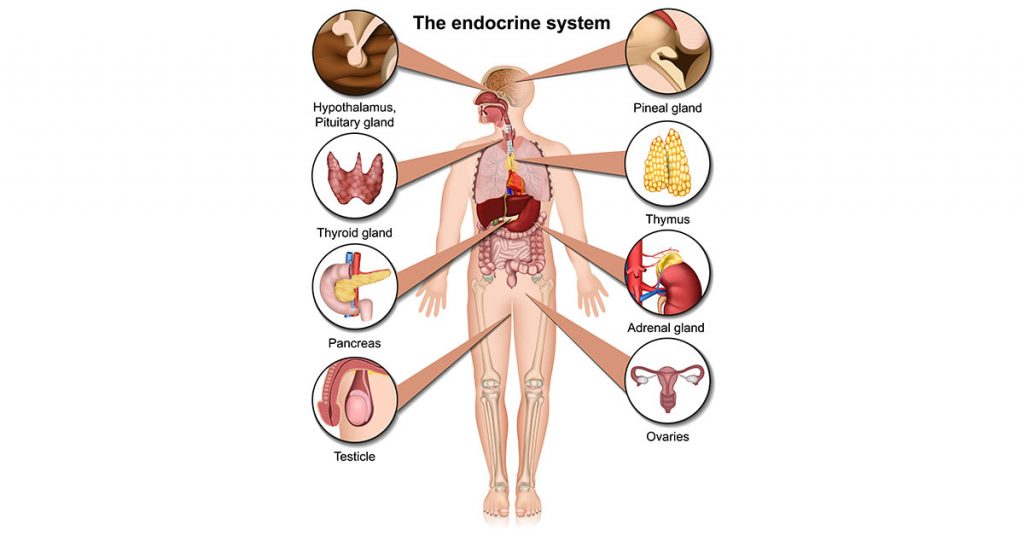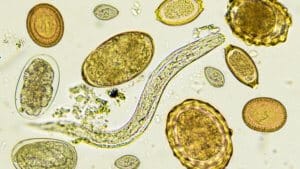Is Leaky Gut Syndrome a real condition?

Is Leaky Gut Syndrome a real condition?
Leaky gut syndrome, also known as increased intestinal permeability or hyperpermeability, is a digestive condition in which bacteria and toxins leak through the intestinal wall.
Some mainstream medical professionals do not recognize leaky gut as a real condition. There is, however, mounting evidence to demonstrate leaky gut exists and causes multiple health problems, including autoimmune diseases.
At Advanced Functional Medicine, we strongly support the diagnosis and treatment of leaky gut syndrome and see many patients whose lives are transformed after testing and subsequent tailored treatment.
What exactly is leaky gut and how is it linked to autoimmune diseases?
At the most basic level, a leaky gut means your intestines aren’t as secure as they should be.
Tight gap junctions, (spaces between the single layer of cells in the wall of the small intestine), regulate the number of food particles and nutrients that are passed from the gut and into the bloodstream.
In people with a healthy intestinal lining, up to 2 percent of food particles and nutrients will pass through the lining. For people with poor gut health however, large particles that should be contained will pass into their bloodstream.
This process causes inflammation and the large foreign particles that have slipped through the compromised tight gap junctions fire up the immune system.
When a person has leaky gut syndrome, “the epithelium on the villi of the small intestine becomes inflamed and irritated, which allows metabolic and microbial toxins of the small intestines to flood into the blood stream. This event compromises the liver, the lymphatic system, and the immune response including the endocrine system.” 1

This assault on the system becomes too much, confusing the body and instigating a process known as molecular mimicry. In this process, the body accidentally marks a healthy cell of the body as a foreign invader through T Cell regulation. The result is a continued attack on healthy cells of the body and “in individuals with a genetic predisposition, a leaky gut may allow environmental factors to enter the body and trigger the initiation and development of autoimmune disease.” 2
What autoimmune diseases are linked to leaky gut?
A leaky gut has been observed in several autoimmune diseases including the following:
- Type 1 Diabetes
- Multiple Sclerosis
- Inflammatory Bowel Disease
- Hashimoto’s Disease
- Celiac Disease
- Autoimmune Hepatitis
- Systemic Lupus Erythematosus
What causes leaky gut?
Numerous factors can affect intestinal permeability, such as various diet-derived compounds, alcohol consumption, and gut microbiota dysbiosis. 3 Growing evidence shows that the gut microbiota is important in supporting the epithelial barrier and therefore plays a key role in the regulation of environmental factors that enter the body.
The high prevalence of leaky gut in our society is a direct result of our modern lifestyle. The toxic and inflammatory foods we eat, medications, infections, and chemicals our bodies are exposed to and the chronic stress we are under every day are the cause. 4
Leaky gut diet syndrome
Evidence suggests that eating a typical Western diet, which tends to be low in fibre and higher in added sugar and saturated fat, increases the risk of bowel disorders, digestive disorders and ultimately the development of leaky gut.
Research has also shown that zonulin, a human protein, can cause the tight junctions of the intestines to break apart.
“Zonulin is the only physiologic modulator of intercellular tight junctions described so far that is involved in the trafficking of macromolecules and, therefore, in tolerance/immune response balance. When the zonulin pathway is deregulated in genetically susceptible individuals, autoimmune disorders can occur.
This new paradigm subverts traditional theories underlying the development of these diseases and suggests that these processes can be arrested if the interplay between genes and environmental triggers is prevented by re-establishing the zonulin-dependent intestinal barrier function. Both animal models and recent clinical evidence support this new paradigm and provide the rationale for innovative approaches to prevent and treat autoimmune diseases.” 5
Bacteria and gluten have been shown to trigger zonulin release in the small intestine, which is why Functional Medicine health professionals recommend treating the condition with dietary changes and excluding gluten from the diet. By implementing a celiac (coeliac) diet, we can hinder the release of zonulin and repair digestive health.
NSAID pain relievers and antibiotics
Studies have shown that NSAIDs, (nonsteroidal anti-inflammatory drugs), can significantly impact the diversity in the gut’s microbiome, causing a bacterial imbalance known as dysbiosis. These medicines are one of the greatest barriers to recovery for those dealing with leaky gut. 6

Antibiotics kill both the bad and the good microorganisms in your stomach, disrupting your gut’s natural balance. Without the good bacteria to fight off the overgrowth of other organisms, Candida or SIBO can overgrow and multiply, damaging the lining of your intestinal walls, and lead to leaky gut. 7
Gut infections
Bacterial, fungal and viral infections can all compromise the permeability of the intestinal walls. Clinically, we see patients that test positive for intestinal permeability have either gut dysbiosis, candida, parasite infections or a range of long standing food allergens.
High zonulin levels, measured with patients with these conditions are also commonly found elevated.
Stress
Although a mental state, stress can physically affect our gastrointestinal system and the bacterial residents within it. In fact, high levels of stress can affect gut bacteria to a similar degree as a highly processed diet, increasing the intestine’s permeability.
Leaky gut syndrome signs and symptoms – how do you know if you have leaky gut?
- Digestive issues such as gas, bloating, diarrhea, or irritable bowel syndrome (IBS)
- Food allergies or food intolerances
- Brain fog, difficulty concentrating, ADD, or ADHD
- Mood imbalances such as depression and anxiety
- Skin issues such as acne, rosacea, or eczema
- Seasonal allergies or asthma
- Hormonal imbalances such as irregular periods, PMS, or PCOS
- Diagnosis of an autoimmune disease such as rheumatoid arthritis, Hashimoto’s thyroiditis, lupus, psoriasis, or celiac disease
- Diagnosis of chronic fatigue or fibromyalgia 8
Leaky gut prevention
You can take the following steps to help prevent or heal from leaky gut.
1. Avoid inflammatory and toxic foods
Gluten
Because gluten is linked to the release of zonulin, it tops most doctors’ lists of leaky-gut-causing foods. Common sources of gluten include pastas, noodles, breads, pastries, cereal and beer.
Sugar
Research shows sugar feeds bad gut bacteria. Avoid refined sugars like high-fructose corn syrup, as well as “healthy” sweeteners like maple syrup and coconut sugar. Alcoholic beverages also break down as sugars so best to avoid them.
Dairy products
There are two proteins in dairy that many people struggle to digest – casein and whey. Many people don’t have enough lactase to properly break down the lactose in milk. This causes gastrointestinal distress and potential gut damage.
Soy products
Soy and its derivatives can trigger gut flora imbalances. Many experts recommend avoiding all generically-modified foods if you have a leaky gut.
Corn
The effects of corn sensitivity are similar to those of gluten sensitivity. Like gluten and soy, corn is present in many packaged foods, so it’s important to read labels carefully.
Lectins and phytates
These compounds are found in all gluten-containing grains, beans, corn, and nightshade vegetables like tomatoes, eggplant, peppers, and potatoes. Lectins bind to the cells lining your intestines, disrupting the tight junctions between the intestinal cells. This contributes to leaky gut, while phytates interfere with the absorption of important minerals.
2. Consume a diet rich in essential nutrients and fibre
Fermented foods
Top up your diet with probiotic containing foods such as fermented foods like sauerkraut and kimchi. Be mindful that these foods can exacerbate negative gut symptoms such as gas, bloating and loose stools in some individuals with gut dysbiosis.
Prebiotic foods
Prebiotic foods are essential to help feed the beneficial bacteria in the gut. Prebiotics foods include tomatoes, bananas, asparagus and leeks. As probiotics are generally considered safe, it is anticipated that they will become cost-effective treatment options for people with autoimmune diseases in the foreseeable future. 9
Healthy fats
Include quality fat sources like nuts, seeds, avocado, olive oil and coconut oil. Skip ultra-refined vegetable oils like corn and soybean, which can promote inflammation.
High-fibre, low-glycemic carbs
These include non-starchy vegetables such as leafy greens and cruciferous vegetables e.g. broccoli, brussel sprouts, cabbage, cauliflower, and other greens.
Slow carbs
Include starchy vegetables such as sweet potatoes and butternut squash; fibre-rich, low-sugar fruits like apples and berries, and minimally processed, fibre-rich grains like rolled oats instead of breads and refined grains. These are less likely to contain anti-nutrients like lectins and phytates that can aggravate the gut.
Hypoallergenic proteins
These include pea, rice, hemp and chia. A leaky gut makes people more prone to food allergies and sensitivities. Opt for hypoallergenic proteins when possible.
Clean and lean proteins
Compared to their conventional counterparts, free-range poultry, wild-caught fish and grass-fed meats contain healthier concentrations of omega-3 fats, which are anti-inflammatory.
Bone broth (or collagen)
The gelatin in bone broth protects and heals the mucosal lining of the digestive tract, aiding in the digestion of nutrients. Some research suggests collagen peptides may have a similar benefit. Among other positive attributes, bone broth is a rich source of the amino acid, glutamine. Glutamine is the preferred energy source for cells of the small bowel and other immune cells that have been shown to reduce intestinal permeability.
3. Reduce and limit your exposure and intake of NSAIDs
NSAIDS or non-steroidal anti-inflammatory drugs include aspirin, naproxen, ibuprofen and celecoxib. We strongly advise avoiding antibiotics, BPA, mercury, and pesticides.
4. Repair your gut with quality supplements
Quality supplements to aid the prevention or healing of leaky gut include probiotics, L-glutamine, digestive enzymes, and Betaine HCL.
5. Exercise regularly
Research suggests that cardiovascular fitness is linked to a larger volume of a beneficial type of gut bacteria by-products. This bacteria helps strengthen the intestinal lining and support the prevention of leaky gut syndrome.
6. Reduce your stress
Chronic stress has been associated with increased intestinal permeability, or leaky gut. There, ensure you find time to relax on a regular basis through yoga, meditation or deep breathing.
Should you be tested for leaky gut?
If you have leaky gut, you may have increased levels of blood markers that signify the presence of inflammation. This inflammation can make you susceptible to autoimmune disorders.
If you display any of the above symptoms, testing for leaky gut can help. Advanced stool testing, such as the Microbiome Mapping stool test, includes markers such as zonulin and indicates intestinal permeability.
If you would like more information on testing or have any questions, please contact us at 1800 11 22 36 or complete the form below.




